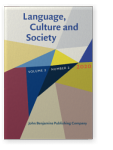Vol. 2:2 (2020) ► pp.197–226
Hoping for success, becoming a spiritual subject
Converted returnees in China
This article focuses on the entanglement of trajectories of transnational education/work and religious conversion among Chinese overseas students who move to the UK before returning to China. In contrast to the existing literature on returnees where the gaze is only turned on highly prestigious schemes/trajectories of return, we look at those who become involved with Christian evangelical congregations and bible reading groups in response to a general state of disillusion with social beliefs of global competition and success. By drawing on ongoing ethnographic fieldwork in London and Beijing, we engage with literature on lived religion, migration and the care of the self through a sociolinguistic lens. We take pressures for successful return as a technology of hope that shaped our participants’ experiences of Christian conversion, and examine religious practices as support-based subject-transformation projects whereby our participants regulate their and others’ practices and feelings through daily semiotic activities as they operate within global spaces of higher education and the labour market. In so doing, we detail a complex interplay of self-transformation experiences, collective practices of refusal, and capitalist logics of market expansion.
Article outline
- 1.Introduction
- 2.Returnees, national desires, and citizenship governance in China
- 3.“Lived religion”, Chinese migration, and the care of the self: A research approach
- 4.Subjects, templates and projects
- 4.1Baozhai and the leading of bible reading groups
- 4.2Yuenyi and sharing stories of transformation
- 5.Hope, affective alliances and global circuits of labour
- Acknowledgements
- Notes
-
References
